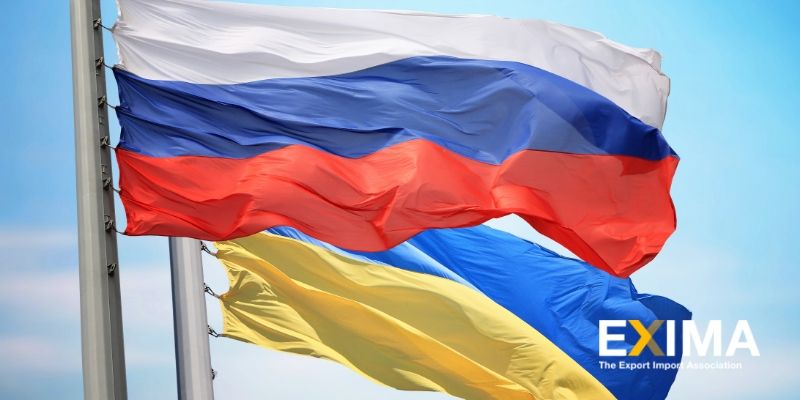Ukraine has been fighting for independence from Russian influence for centuries, and the fall of the Soviet Union provided the nation with the impetus it needed. But Russia's and Ukraine's relations have significantly deteriorated since Russia invaded Crimea in 2014. Ukraine has thus gradually distanced itself from Russia and began to turn westward. However, Russia saw a western-influenced Ukraine as a threat, especially if it joined NATO.
Russia Sanctioned
On February 24th, Russia launched its second invasion of Ukraine in a decade. Ukraine's President Zelenskyy pleaded with the international community to stop Russia's invasion, and the Western world, led by US President Biden, sanctioned Russia. Individuals, businesses, and Russian banks were all targeted by the sanctions, prohibiting them from participating in global transactions and trading markets.
As a result of the sanctions, Russia's economy took a sharp turn for the worse. There was a run on the banks, its currency lost its value, and authorities forced the stock exchange to stay closed for weeks.
Russia’s Reaction to Sanctions
Russia was relying on its $640 billion gold and forex reserves to fight the sanctions, but the western nations swiftly restricted its access. In response to a falling currency, Russia's central bank took immediate action by:
- Raising interest rates to 20%, giving an incentive for Russians to save their money;
- Implementing a series of capital controls for Russian businesses and individuals. Companies that export receipts, for example, must convert 80% of their foreign exchange revenues to rubles, while individuals can only transfer $10,000 abroad in the next six months.
The measures were effective as the Ruble gained strength in a few days and erased its losses.

But what helped the Russian government the most was the critical oil and gas it exports and the EU's heavy reliance on it. Despite all the diplomatic fallout, sanctions, and condemnations, the EU is still importing Russian oil products. The EU relies on Russia for 40% of its gas needs; this year alone, payments for Russian gas were between $200 million and $800 million per day. Russia leveraged the EU's reliance on its exports to demand payment in Rubles, creating demand for their currency.
Russia's President Putin said that European countries would only harm themselves if they stopped taking Russian gas and oil. For any slowdown in supplies to Europe, President Putin believes he can find other markets, particularly in the East. China and India have made overtures to buy Russia's heavily discounted oil.
Russia has also stopped supplying gas to Bulgaria, Poland, and Finland. The EU is accusing Russia of blackmail.
Despite its stoic stance, even the Russian government expects its economy to go into recession with inflation of over 20% and face a debt default. The Russian government will also stop releasing some economic data to obscure the effects of sanctions.
Learn More with EXIMA News
Found this article informative? Check out the rest of our site today!









